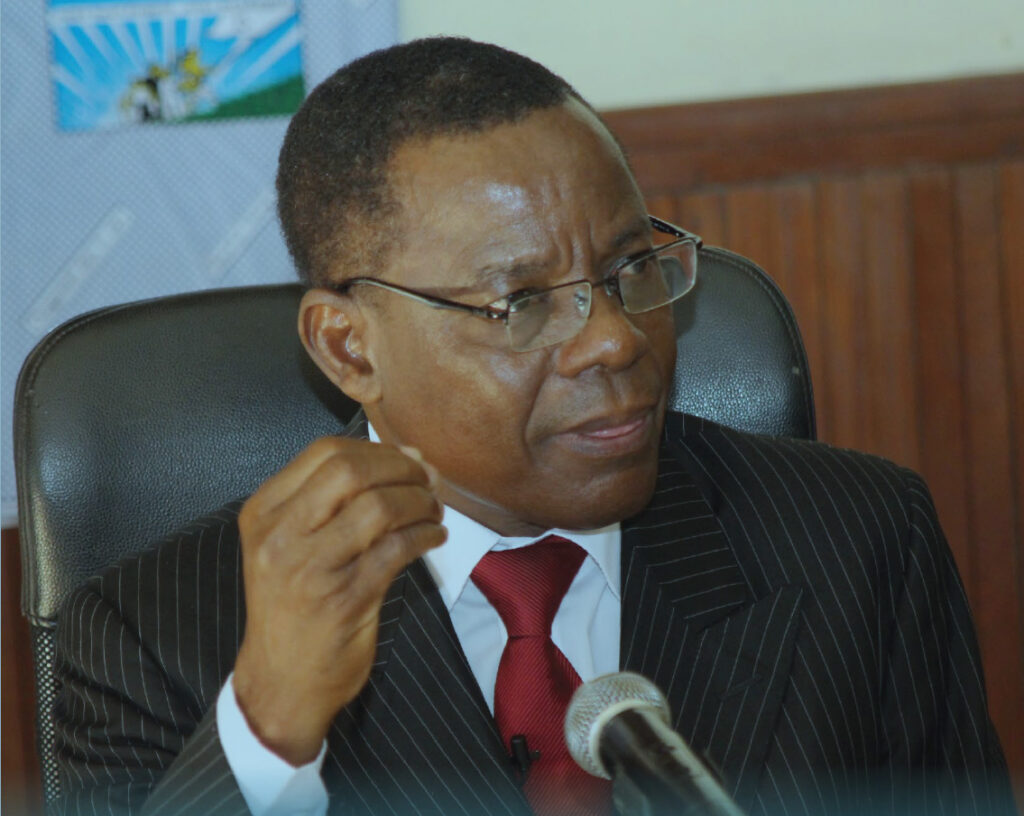Reform institutions for flexible, effective and participatory management of the Republic

The CRM and several other actors of the Cameroonian political scene as well as of the civil society, proposed these last years reforms which concern only some provisions of the Electoral Code, on which the national political forces can agree easily.
Unfortunately, Parliament has very often acted as a barrier to legislative proposals and a registration chamber for bills essentially emanating from the Government.
This reinforces the idea widely shared by various political sensitivities and civil society of the need to carry out a constitutional reform in order to rebalance the powers within the State, first between the Executive, the Parliament and the Justice , then, within the Executive between the Presidency of the Republic and the Government, and finally between the State and the Regions or the Federated States if such is the choice of Cameroonians.
Reform the constitution
We will reform the Constitution by introducing in particular:
- The limitation of the number of presidential terms to a term renewable only once;
- The presidential election in two rounds;
- The lowering of the electoral majority from 20 years to 18 years;
- The rebalancing of powers between the Executive and Parliament: allowing parliamentarians to set up parliamentary inquiry commissions without requiring the approval of the President of the Republic, as is the case in practice today; involving Parliament in the appointment of the heads of the main judicial institutions (First President of the Supreme Court; President of the Constitutional Council); placing the Sovereign Fund to be created under parliamentary control; inform Parliament of the management of the country’s natural resources.
- The rebalancing of powers within the Executive, between the President of the Republic and the Prime Minister: making the Prime Minister the real head of Government with the necessary authority who fulfills his mission of coordinating government action and implementation of the policy defined by the Head of State; the latter sets the course through the definition of the nation’s policy, the Prime Minister is responsible for implementing the policy thus defined.
- The strengthening of judicial power, among other things, by reducing the influence of the Executive on the functioning of judicial institutions: the Superior Council of the Judiciary will no longer be chaired by the Head of State, but by the First President the Supreme Court; its composition will be modified to include representatives of civil society.
A Consensual Electoral Code
We will propose to Parliament a consensual reform of the Electoral Code to introduce in particular:
- The introduction of the single bulletin;
Taking into account the constitutional revision introducing two-round elections, - The same probative force to all the minutes of the counting of the elections in a polling station given to the representatives of the candidates and to ELECAM: all the minutes will be equally authentic;
- The reform of ELECAM, in particular its composition, to include representatives of political parties and the methods of appointing its leaders;
Taking into account the constitutional revision establishing the vote at 18; - The introduction of compulsory voting in Cameroon.
Increase the means of Municipalities and Regions (or federated entities)
We will reform the financial system within the framework of decentralization (or federalism) in order to allocate more financial resources to the Municipalities and Regions (or federated entities).
With the effective implementation of decentralization and regionalization, the Regions as well as the communes will be confronted with new competences or missions which will make it necessary to revise the tax equalization rules with a view to allocating the financial resources of the State for the benefit of these entities.
Rationalize public institutions
- Limitation of the number of ministerial departments
This limitation will be done by regrouping or by abolishing certain ministerial departments. In any case there will be no more than 25 ministerial departments.
- The abolition of the Economic and Social Council, an obsolete institution produced by the centralized State, not adapted to the context of the new State which will be organized on a regional or federal basis.
Redefining the status and role of traditional authorities
We will redefine the status and role of traditional authorities. Indeed, the notion of auxiliary to the administration which currently sums up their status seems simplistic and should be overcome.
More specifically, an Assembly of Traditional Chiefs will be created among the regional or federated institutions, with consultative power on general questions of development of the Region (or of the federated State), and deliberative power on questions relating to customs and traditions. traditional or related to them. This assembly will also participate in monitoring the development projects of the Region (or of the Federated State).